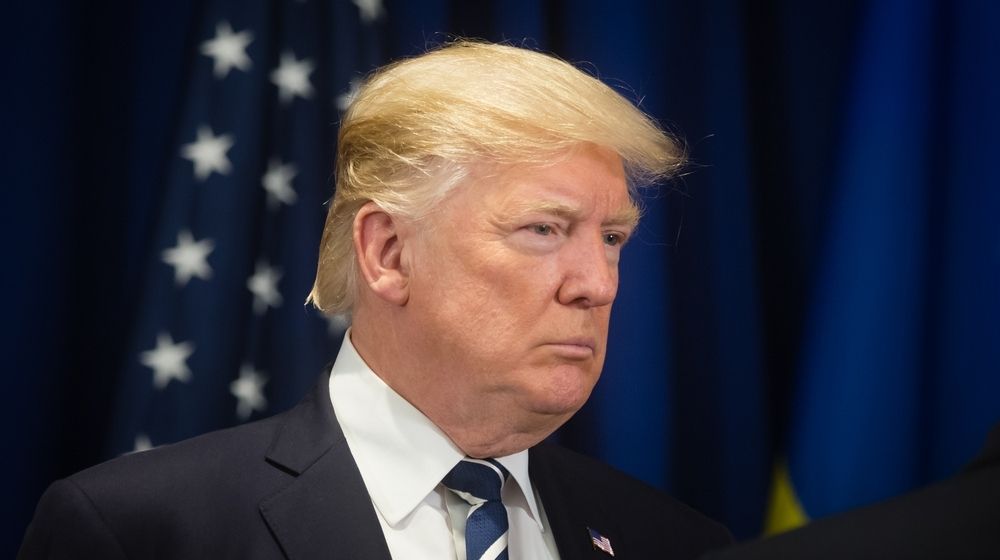Breaking News
Supreme Court Send Trump Tax Return Cases Back to Lower Courts

The Supreme Court had the chance to make a decisive ruling on a Democratic push to obtain President Trump’s tax returns on Thursday. However, they decided to punt by sending it back to lower courts.
In a 7-2 decision, the country’s highest court decided to send the Trump tax return cases back to the low courts. It did so without issuing a definitive ruling on the matter. The ruling temporarily blocks Democrats from accessing President Trump’s returns. Although, the door is still open for them to pursue the matter through lower courts.
President Trump’s Democratic adversaries have kept pining for his tax returns since before his election. Democrats have made several attempts to gain access to Trump’s tax returns at both the federal and state level. However, Trump's camp has countered them at every turn. Two cases made it as high as the Supreme Court, and both were consolidated into Thursday’s decision.
In one case, The House Oversight Committee subpoenaed an accounting firm called Mazars USA for access to Trump’s financial records from 2011 to 2018, including his tax returns. The second case involved the House Financial Services and Intelligence Committees subpoenas for records from Deutsche Bank and the Financial Service Committee subpoenas for Capital One.
Sending Back to Lower Courts
Supreme Court ruling on Trump’s tax returns, financial records to come Thursday https://t.co/Bwgp3hLWKn
— The Washington Post (@washingtonpost) July 8, 2020
The case has major political implications, so the Supreme Court was in a tough spot. The court essentially wiped its hands of the matter, for now at least. It did so instead of ruling one way or the other. Depending on how the cases proceed in low court, the matter might land in front of the Supreme Court again.
In the court’s deciding opinion, Chief Justice John Roberts explained why the court believed the cases should be sorted out in lower courts. He wrote that Congress should use “the wide variety of means that the Constitution puts at their disposal” to pursue their cases. Roberts added that deciding in favor of either party would fundamentally transform the “nature of such interactions” and erode a “deeply embedded traditional way of conducting government.”
Two dissenting justices, Associate Justices Clarence Thomas and Samuel Alito, voted against the court’s ruling. In his dissenting opinion, Thomas said Congress was overstepping its boundaries. “I would hold that Congress has no power to issue a legislative subpoena for private, nonofficial documents—whether they belong to the President or not,” wrote Thomas.
Alito took a bit of a softer stance than Thomas. “Such subpoenas are not categorically barred,” he admitted. However, he said legislators didn’t provide sufficient justification for pursuing the information. Although, Alito also raised some concerns over the political nature of the pursuit of the president’s tax records. “[L]egislative subpoenas for a President’s personal documents are inherently suspicious,” Alito said. He added that such documents “are seldom of any special value in considering potential legislation.”
The Supreme Court also ruled on a case from Manhattan prosecutors who are also seeking the president’s tax returns. The court ruled that the president isn’t immune from such investigations. However, it sent the matter back down to a lower court for further review.
Trump's Camp Reacts
The counsel to the president, Jay Sekulow, released a statement after the ruling. “We are pleased that in the decisions issued today, the Supreme Court has temporarily blocked both Congress and New York prosecutors from obtaining the President’s tax records,” said Sekulow. “We will now proceed to raise additional Constitutional and legal issues in the lower courts.”
The ruling breathes new life into efforts to obtain Trump’s tax return. It also sets the stage for a prolonged standoff in low court between the president and his adversaries. Trump’s opponents will likely pursue the matter with renewed vigor now that the Supreme Court has passed judgment on the matter. Although, they will meet stiff resistance at every turn from Trump’s legal team. It’s currently unclear whether the cases will be resolved in time for the November election.
Up Next:












